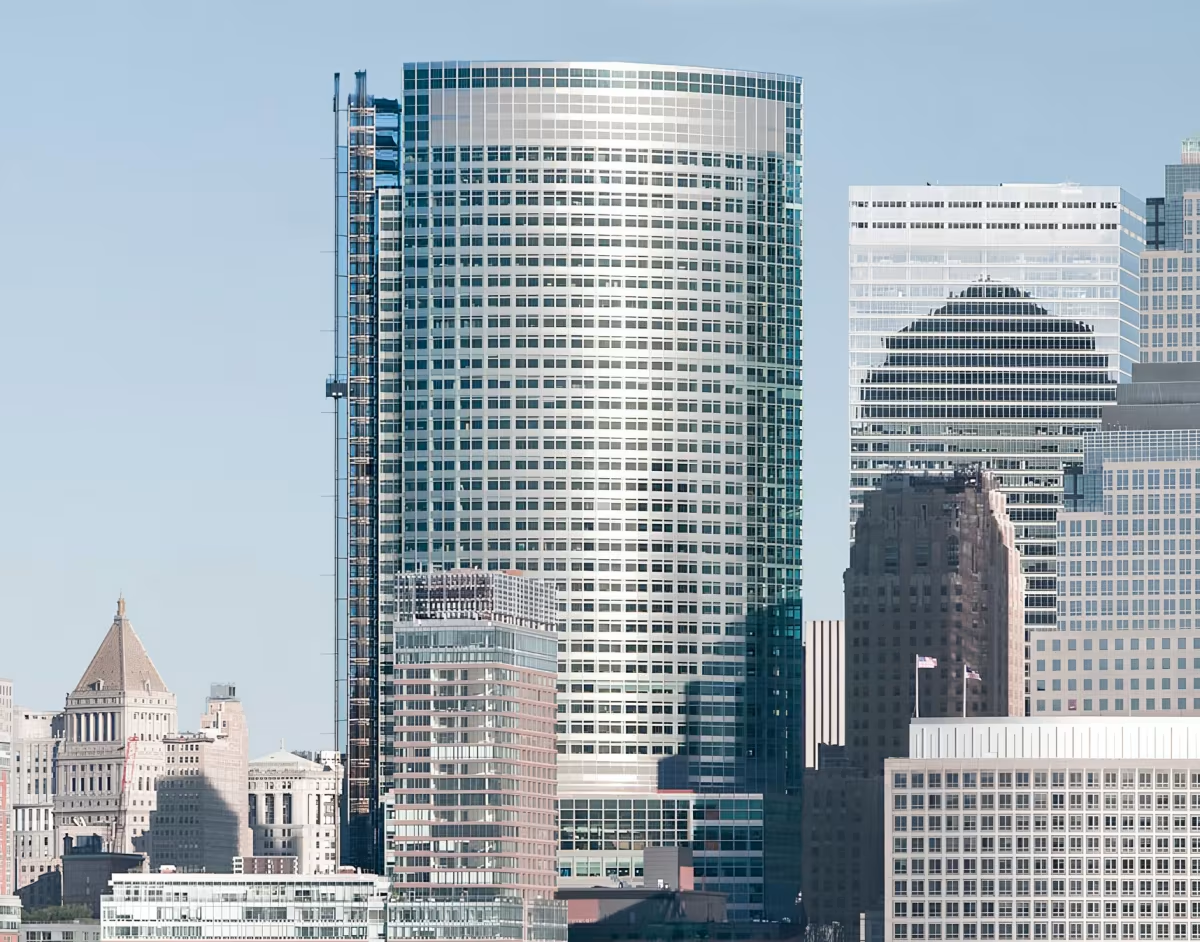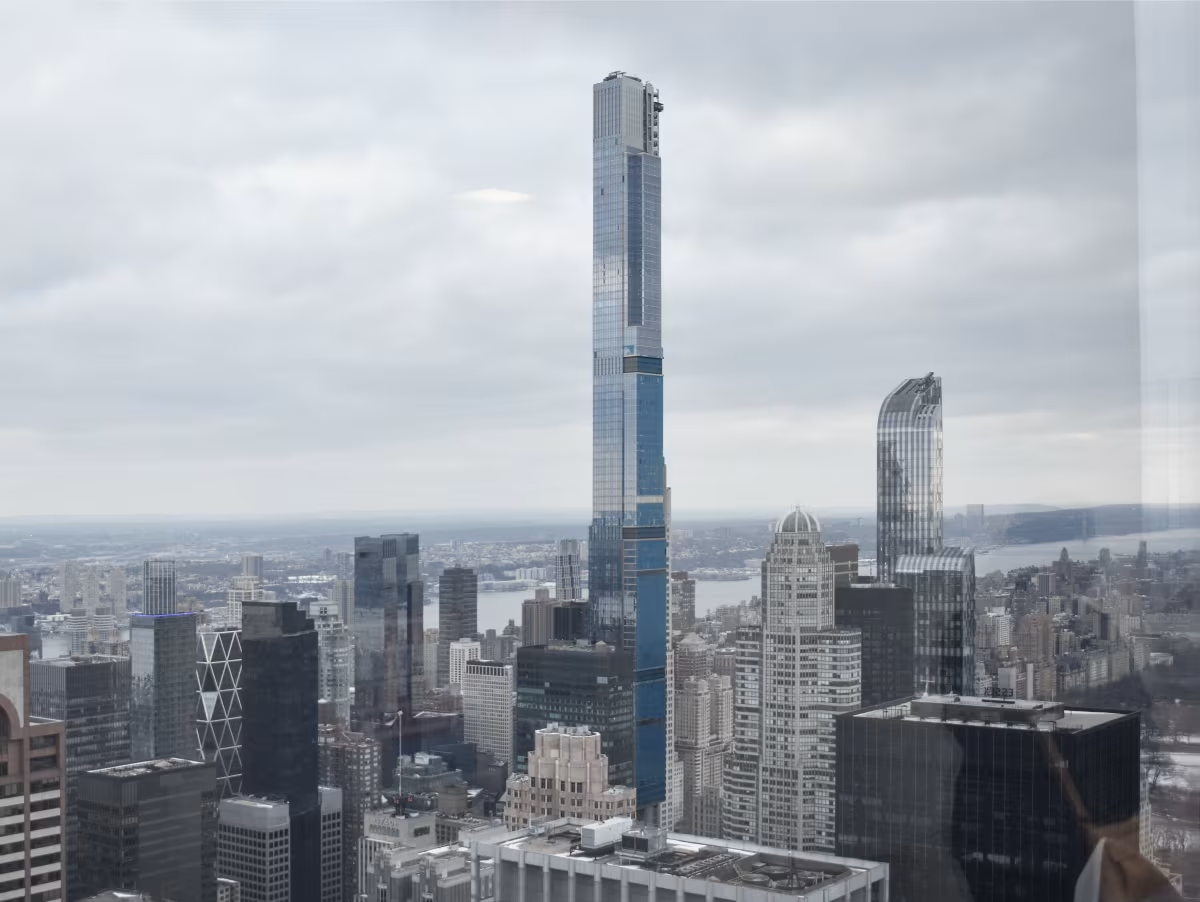200 West Street Building vs Central Park Tower


Comparing the 200 West Street Building and the Central Park Tower is interesting because they both rise in New York, NY, yet they were conceived by two different design teams, Pei Cobb Freed & Partners and Adrian Smith + Gordon Gill Architecture, and were completed at different points in time. They were finished more than a decade apart.
This contrast within the same city allows us to see how different creative minds interpreted the evolving needs of New York across time.
Let's take a closer look!
Height & Size
The Central Park Tower is clearly the larger tower of the two, both in terms of height and number of floors. It rises to 1549ft (472m) with 98 floors above ground, while the 200 West Street Building reaches 741ft (226m) with 45 floors above ground.
Despite being taller and having more floors, Central Park Tower has less total built-up area than 200 West Street Building.
Of course, each project may have faced different briefs or regulatory constraints, which we don't really know about and could also explain the outcome.
Architectural Style
Both the 200 West Street Building and the Central Park Tower were designed in line with the aesthetic conventions of the Contemporary style.
At the time, this style was at the height of its popularity. So both Pei Cobb Freed & Partners and Adrian Smith + Gordon Gill Architecture followed what was in many ways expected of them, producing designs that fit comfortably within contemporary architectural norms, rather than breaking with convention.
Uses
The 200 West Street Building is primarily commercial, while the Central Park Tower is primarily residential.
The Central Park Tower offers 179 residential units.
Structure & Facade
The two towers rely on different structural systems, reflecting distinct engineering strategies.
The 200 West Street Building uses a Trussed Frame structural system, which uses diagonal bracing in addition to beams and columns for stability, while the Central Park Tower uses a Frame system, that relies on a regular grid of columns and beams to sustain its weight.
Yet, when it comes to their facade, they both employed the same solution, a Curtain Wall facade.
A curtain wall is a non-load-bearing facade hung from the structural frame. It is anchored to floor slabs and transfers only its own weight and wind loads, allowing for sleek, glassy exteriors.
| 200 West Street Building | Central Park Tower | |
|---|---|---|
| Pei Cobb Freed & Partners | Architect | Adrian Smith + Gordon Gill Architecture |
| 2005 | Construction Started | 2014 |
| 2010 | Year Completed | 2020 |
| Contemporary | Architectural Style | Contemporary |
| Commercial | Current Use | Residential |
| 45 | Floors Above Ground | 98 |
| 226 m | Height (m) | 472 m |
| 195095 | Built-up Area (m²) | 119409 |
| 53 | Number of Elevators | 11 |
| Trussed Frame | Structure Type | Frame |
| Steel | Vertical Structure Material | Reinforced Concrete |
| Poured Concrete Over Metal Decking | Horizontal Structure Material | Poured Concrete Over Metal Decking |
| No | Facade Structural? | No |
| Glass, Steel | Main Facade Material | Aluminum, Glass |
| Tishman Construction | Main Contractor | Lendlease |
| Goldman Sachs | Developer | Extell Development Company |
| Cosentini Associates | MEP Engineer | AKF Group |
| Halcrow Yolles | Structural Engineer | WSP |
| Permasteelisa Group | Facade Consultant | James Carpenter Design Associates And Permasteelisa Group |
| NY | State | NY |
| New York | City | New York |
| 200 West Street | Address | 225 West 57th Street |